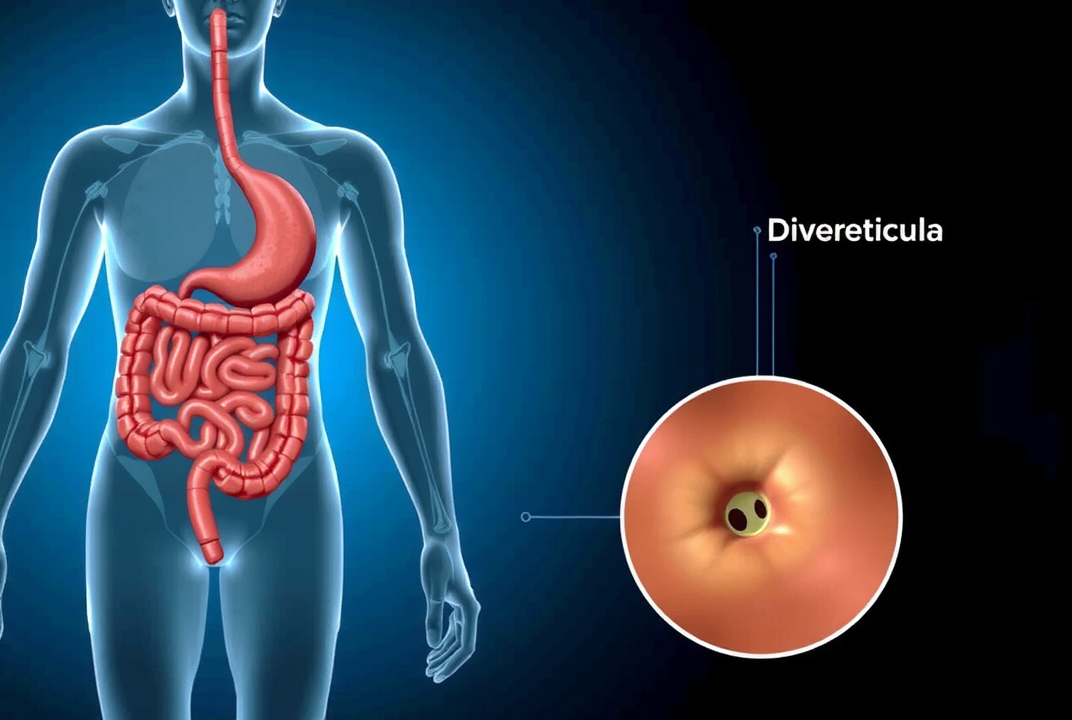Debunking Diverticulitis: Symptoms in Women Myths vs. Facts

Introduction
Did you know that diverticulitis affects women's health differently than men's? With numerous myths surrounding this condition, it becomes crucial to distinguish fact from fiction, especially concerning symptoms in women. This article will guide you through understanding what truly matters when discussing diverticulitis symptoms in women and help sift through common myths to reveal the facts.
Understanding Diverticulitis
Diverticulitis is a digestive condition arising from the inflammation of diverticula, which are small pouches in the colon wall. Anyone can develop diverticula, but when these pockets become inflamed or infected, it progresses to diverticulitis. Symptoms can vary significantly from person to person.
Symptoms in Women: Myths vs. Facts
Myth 1: Only Older Women Experience Symptoms While it's true that the prevalence of diverticulitis increases with age, younger women are not immune. Factors such as genetics, diet, and lifestyle play essential roles in developing symptoms regardless of age.
Fact: Variable Symptom Presentation Women may experience a range of symptoms, from mild discomfort to severe pain. Common symptoms include abdominal pain, often on the left side, fever, and changes in bowel habits.

Myth 2: All Women Experience the Same Symptoms The belief that all women with diverticulitis have identical symptoms is misleading. Individuals may have unique experiences, including atypical symptoms like nausea or fatigue.
Fact: Individual Variability is the Norm It's essential for women to consult healthcare providers for a proper diagnosis, as symptoms can overlap with other digestive issues.
Common Misunderstandings About Diverticulitis
Diet and Lifestyle Myths
Myth 3: Nuts and Seeds Are Major Triggers A common myth suggests that consuming nuts and seeds exacerbates diverticulitis. However, recent studies have found no direct link between these foods and symptom aggravation.
Fact: Balanced Diet Management Women can manage diverticulitis symptoms by maintaining a balanced diet rich in fiber, which helps reduce the risk of flare-ups.
Myth 4: Diverticulitis Equals Poor Diet While diet influences digestive health, blaming it solely for diverticulitis is inaccurate. The condition also involves genetic and lifestyle factors.
Fact: Complex Causes Understanding that diverticulitis's causes extend beyond diet leads to better long-term management and symptom reduction.
Treatment Options: Myths vs. Facts
Medical and Self-care Approaches
Myth 5: Surgery is Inevitable Many women fear surgery as the only resolution for diverticulitis. Contrary to this belief, surgery is often reserved for severe or recurring cases.
Fact: Diverse Treatment Approaches Many women can manage symptoms through medication and lifestyle adjustments, often avoiding surgical intervention.

Myth 6: Antibiotics Are the Only Solution While antibiotics are a common treatment, they aren't the sole solution. Managing the condition often includes dietary changes and probiotics.
Fact: Comprehensive Treatment Plans Collaborating with healthcare providers allows women to explore a combination of treatments tailored to individual needs.
Conclusion
Understanding diverticulitis symptoms in women requires separating myths from facts. By recognizing the diversity in symptoms and treatment options, women can approach their digestive health with clarity and confidence. If you suspect symptoms or need guidance, consulting with a healthcare professional can illuminate the path to effective management and increased well-being.
Next Steps: If you experience symptoms discussed, consider visiting a healthcare provider for proper diagnosis and personalized treatment.